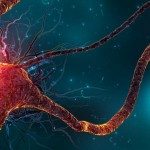Présentation
Speaker: Carl Petersen (Ecole Polytechnique Fédérale de Lausanne (EPFL), Switzerland)
Abstract
Precisely wired neuronal circuits process sensory information in a learning- and context-dependent manner in order to govern behavior. Simple whisker-dependent sensory decision-making tasks in mice reveal contributions of distinct cell types and brain regions participating in the conversion of sensory information into goal-directed motor output through reward-based learning. Task learning is accompanied by target-specific routing of sensory information to specific downstream brain regions. Current evidence from investigations of whisker-deflection detection tasks, in which thirsty head-restrained mice learn to lick a reward spout to obtain a water reward, is consistent with the hypothesis of learning-dependent changes in signalling from primary somatosensory barrel cortex to secondary somatosensory cortex and dorsolateral striatum, indirectly recruiting tongue-jaw motor cortex and higher-order cortical regions, such as medial prefrontal cortex and hippocampus. An important challenge for the future is to understand the brainwide neural circuit mechanisms underlying reward-based learning connecting cell type-specific processing of sensory information with the motor neurons ultimately responsible for goal-directed action initiation and motor control.

